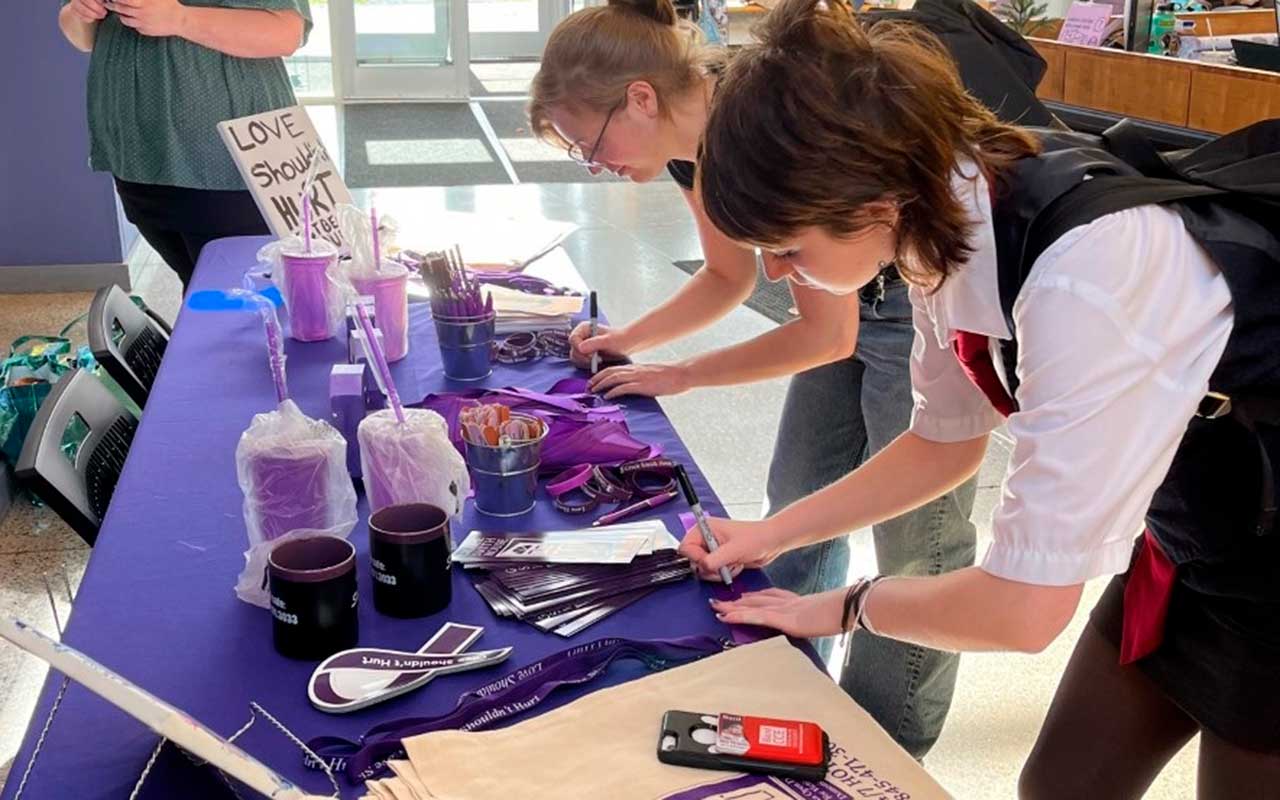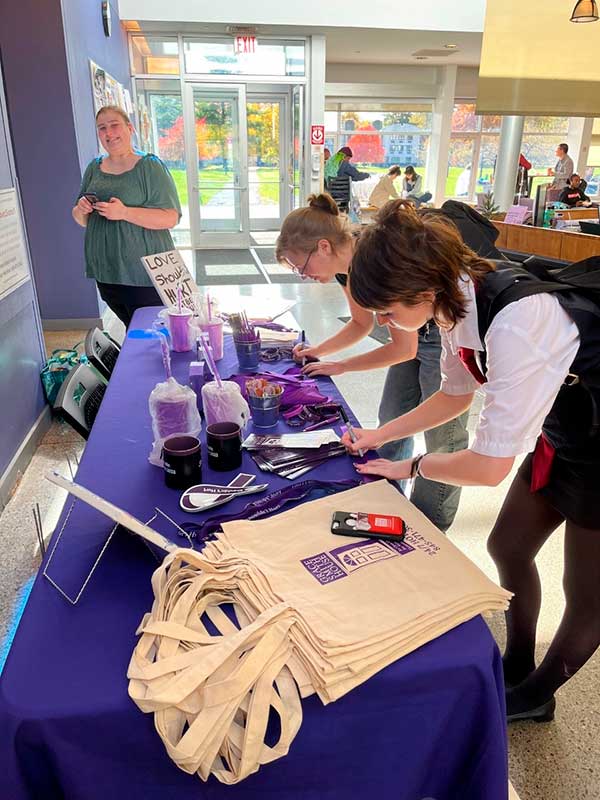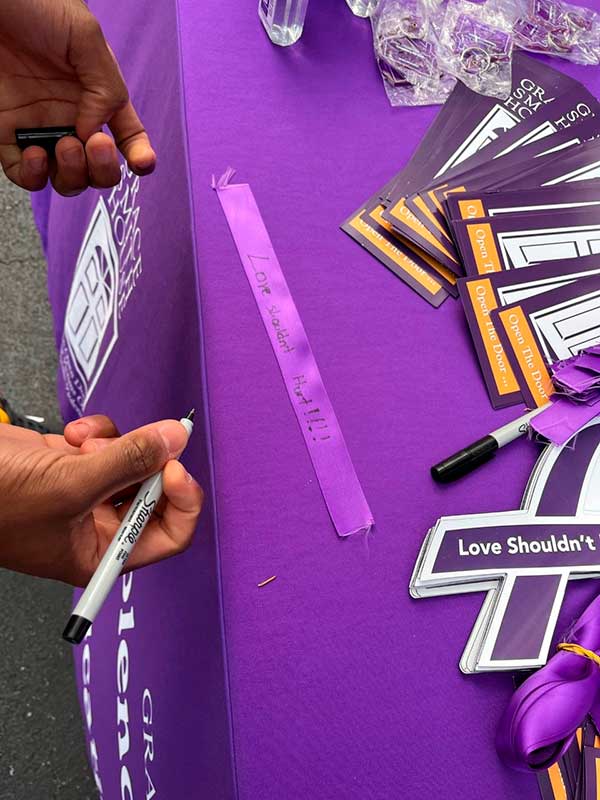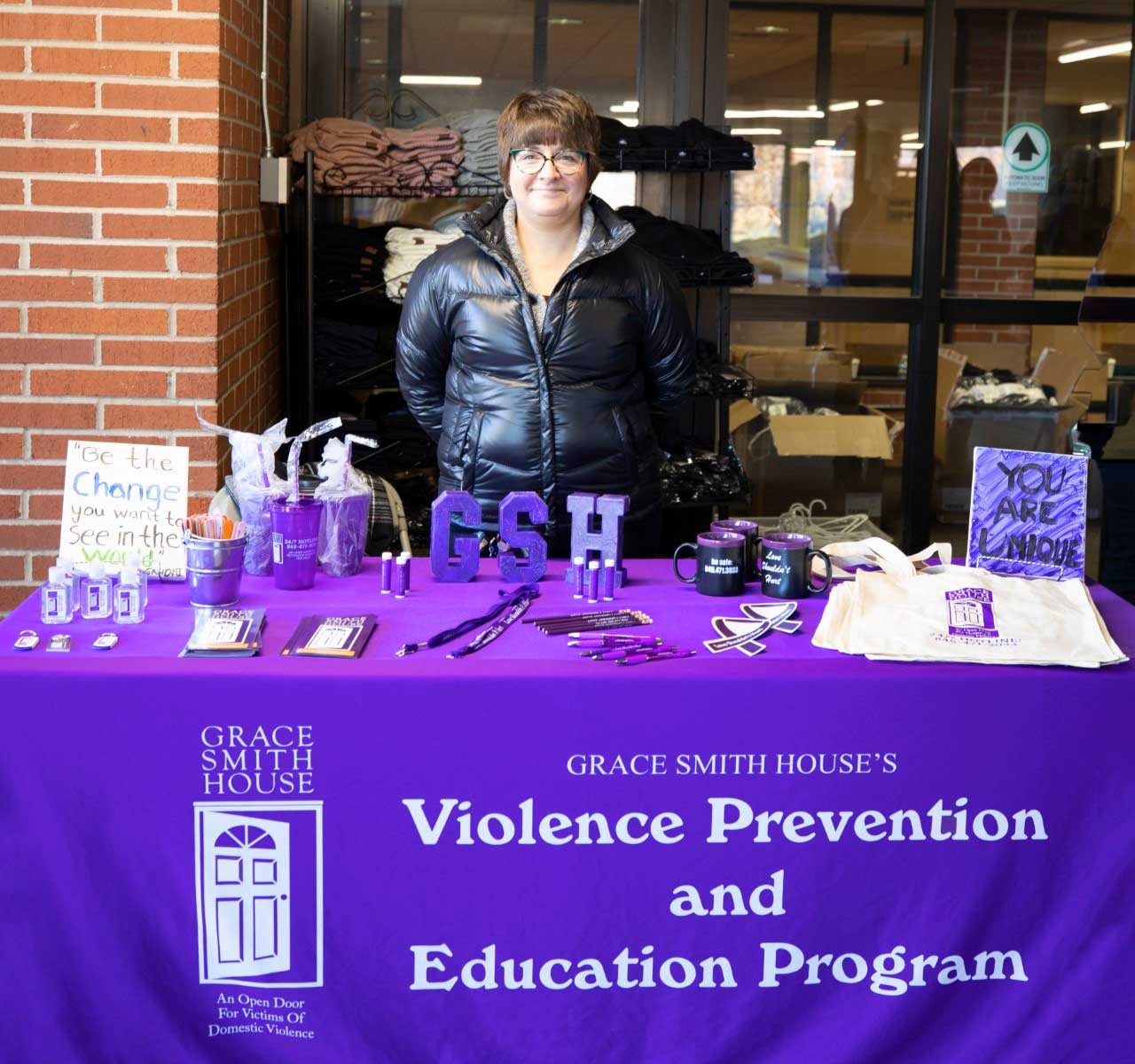Main Street News

Domestic Violence Awareness Month: Grace Smith House
“Domestic violence is considered to be a pattern of behavior that is calculated in order to establish and maintain power and control in an intimate relationship.” This is how Branka Bryan, executive director for Grace Smith House in Poughkeepsie, NY, defined domestic violence.
Grace Smith House is a private, nonprofit organization that provides residential and non-residential services to victims of domestic violence and their families. They offer shelter, transitional housing, advocacy, counseling, outreach, and more to residents of Dutchess County.
 Their mission is to enable individuals and families to live free from domestic violence by providing resources to victims and families, raising community awareness, and by initiating and taking positions on public policies in order to provide options that empower victims of domestic violence.
Their mission is to enable individuals and families to live free from domestic violence by providing resources to victims and families, raising community awareness, and by initiating and taking positions on public policies in order to provide options that empower victims of domestic violence.
The complexities of domestic violence
Domestic violence looks different from relationship to relationship, and Branka shared that it’s important to establish individual differences in order to understand that relationship’s dynamics.
“For example, in the LGBTQ+ community, there can be threats of outing and questioning of people’s identity. In the immigrant community, perhaps a person is relying on their partner to obtain legal status. I’ve seen situations where papers or Green Cards have been stolen in an attempt to keep someone in the relationship. In relationships where one partner is disabled, their disability can be used against them, especially if the partner is a major caretaker,” she said. “Domestic violence looks different in each relationship.”
When asked why some people choose to stay in abusive relationships, Branka took a lengthy pause. “That’s a tough one. It’s a really hard question, and I think just asking the question puts the sense of safety on the victim and doesn’t hold the abuser accountable,” she said.
According to Branka, there are multiple reasons why victims may return to abusers. The number one is that there is a threat or fear of retaliation. Branka says that “the most dangerous time is when someone is leaving because the abuser has lost control.”
When a couple has children, that adds an additional complication, as now the victim doesn’t have to just worry about their own safety, but also the safety of their children.
Additionally, when family and friends don’t believe the victim or make excuses for the abuser, it can cause the victim to return to that dangerous situation. Similar kinds of gaslighting can occur from the abuser as well. Branka said that abusers often make excuses such as “I didn’t do that,” “I didn’t mean to shove you,” “What are you talking about?”, and “What are you talking about? You’re crazy.” This type of gaslighting is another way that abusers often maintain control over a victim.
Warning signs and red flags
An integral part of domestic violence education is acknowledging potential warning signs that abusers show. She noted that it’s important to recognize that nobody enters a relationship looking for potential signs and red flags, but that there are some common characteristics that abusers share. The main one is a sense of possessiveness that can initially be mistaken as extreme care and interest in your life.
“It can look like they’re concerned about you, but that kind of possessiveness often results in restrictive behavior,” Branka said. She noted that it will often start with small things, like simply wanting to know where you are and who you’re with, but typically escalates to controlling different parts of your life such as what you can wear, who you can see, and where you can go.
Another warning sign is very quick involvement in a relationship that has an “us against the world” kind of outlook. Branka said that isolating someone from friends and family can be a huge warning sign.
A common characteristic of abusers is also hypersensitivity. Branka said that many abusers tend to be hypersensitive to criticism or critical questioning, and they are not capable of taking blame or seeing a situation from another person’s perspective. They often view themselves as a victim in difficult situations.
Some huge red flags, according to Branka, are cruelty towards animals and children. “There’s no excuse for that behavior, and that person is not going to change,” she said. As common sense as it may seem, another red flag is previous abuse.
“If someone abused their previous partner, they will likely abuse you too.”
Can people change?
While Branka is adamant that all people have the capacity to change, it’s important to discern who wants the abuser to change.
“People don’t just stop being who they are naturally. If a person is open to talking about their behaviors, open to hearing feedback, and capable of acknowledging the pain that they’ve caused, then absolutely,” she said. “I do believe people can change, and some have. The problem is that the abuser has a lot of control and power in a relationship. That doesn’t just stop, so the abuser really has to recognize their behaviors and label them as wrong.”
She said that in cases where the abuser doesn’t recognize their behaviors as wrong, counseling can make it worse. When victims open up in a counseling session, if the abuser is not willing to change, then they will take what the victim said during that session and use that to manipulate them later on.
“All people can change. I firmly believe that, but the question becomes, who wants them to change?”
 How do I help?
How do I help?
When asked what the average person can do to help, Branka had one word: “Believe.”
As difficult as it may be to sit back and not do anything, Branka said that many times, that’s what victims need.
“Don’t push people to make a decision or leave a situation that they’re not ready to. Sometimes a well-meaning person can do more harm. Ask ‘Is everything okay?’ and ‘What can I do for you?’ Many times a person goes through their own process of understanding their situation and they may not be ready to make any decisions yet.”
Services offered
Grace Smith House provides services, resources, and community outreach and education.
“At the end of the day, the services that we have are tailored to the situation and to what the victim wants to do. They don’t have to leave for us to be able to help them.”
Grace Smith House offers a 24/7 crisis hotline that helps victims assess their situation and assists in creating a safety plan. They also offer an emergency shelter for individuals and their children, which is staffed and open 24/7, and transitional housing, which is made up of apartments for those who are exiting from a short-term shelter stay to a more independent living environment.
They also offer domestic violence counseling and support groups, advocacy and accompaniment, and Spanish-speaking advocacy and counseling outreach.
“Having an advocate to talk to and help you understand the dynamics in the relationship, the resources available, and how to leave is so important. Everybody’s situation is different, so having someone who understands those complexities is vital.”
Grace Smith House also provides outreach and education to the general public through community-orientated events. Some of the topics they cover are identifying domestic violence and how it looks different for everyone, and how to help. Other education they engage in include working with service providers and employers to aid them in screening and identifying domestic violence. They also provide outreach to Dutchess County schools at all levels.
“In elementary schools, we work on identifying peer relationships and how to treat one another. In middle school, we move towards bullying and digital abuse, and then in high school, we work on healthy teen relationships and cover what you should expect and what is not okay.”
Grace Smith House has multiple upcoming events this month, including the Clothesline Project, which is a display of t-shirts decorated by survivors of domestic violence or their loved ones. There will be two Clothesline Projects on display this month; the first is held at Gallery 40 at 40 Cannon Street in Poughkeepsie from October 2-9, and the second will be at the Betsy Jacaruso Studio and Gallery in Rhinebeck from October 20-22.
They will also have two shorter Clothesline Project displays on October 25 at Dutchess Community College and on October 27 at Nubian Directions, both of which are in Poughkeepsie.
If you or someone you know is a victim of domestic violence, you can reach out to Grace Smith House at their hotline (845) 471-3033.
Grace Smith House
1 Brookside Ave, Poughkeepsie, NY 12601
https://www.gracesmithhouse.org/



